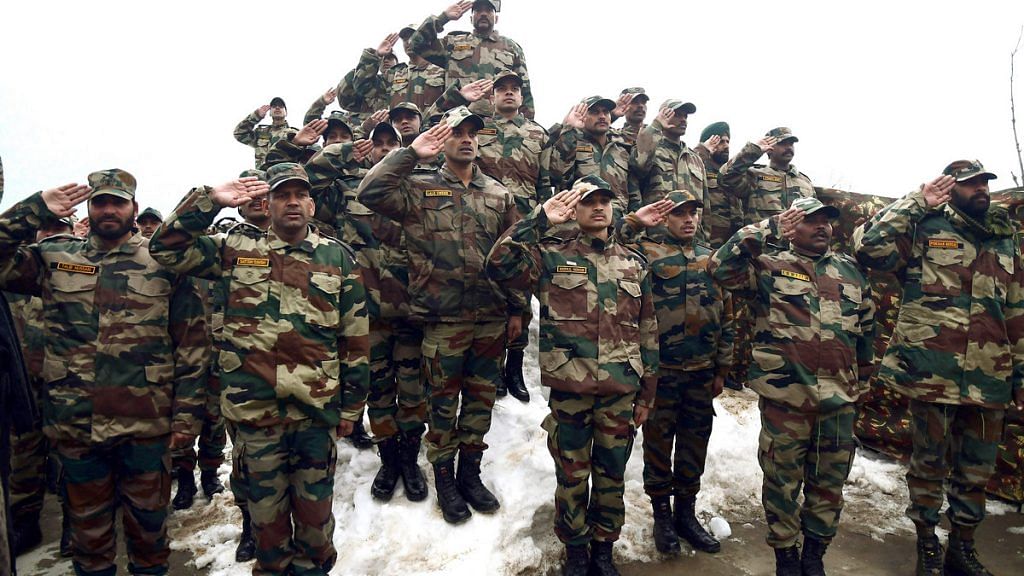The killing of four soldiers and a policeman in an encounter Sunday in North Kashmir’s Handwara has caused concerns and anguish in India’s security establishment. A Commanding Officer of the 21 Rashtriya Riles unit of the Army, twice awarded with Sena Medal (Gallantry), was among the five who lost their life.
The next day, three CRPF personnel were killed by a group of terrorists. Pictures revealed that contrary to the reports of terrorists firing randomly, the deaths were due to clean headshots.
And on Wednesday, India’s most wanted terrorists in Kashmir, Riyaz Naikoo, was shot dead by security forces in an encounter.
Social media erupted with joy with many claiming that Handwara had been avenged. But how, I fail to understand?
Also read: India to push for Pakistan’s blacklisting at FATF after Handwara & Keran terror attacks
Premature celebrations
The terrorists involved in Handwara belonged to the Lashkar-e-Taiba (LeT) and Naikoo belonged to Hizbul Mujahideen.
Even the killing of the LeT chief will not qualify as a revenge. For that to happen the Pakistani army or the ISI has to feel the pain.
For Pakistani Generals, terrorists are nothing more than cannon fodder. And for India, killing such terrorists is a morale booster.
India’s security forces are doing their job, but if one goes by statistics, the ratio of deaths of personnel versus those of the terrorists is a cause of concern.
From 1 April to till date, about 36 terrorists have been killed at the Line of Control and in the Kashmir hinterland.
In the same period, at least 20 security personnel have also lost their lives in encounters with terrorists or in attacks by the terror groups. These deaths include that of the Army, CRPF and Jammu and Kashmir police.
While losing no security personnel and killing all terrorists in any operation would be the best case scenario, we know this would be too good to be true.
However, the high rate of killings of security personnel should be a wake-up call for all concerned.
Also read: Intruders, a house besieged, gunfire — 12-hour J&K encounter that killed Indian Army colonel
Stop glorifying deaths
To begin with, India will have to stop glorifying the deaths of its soldiers. While we should honour and respect every fallen soldier, they should not just end up becoming statistics. Besides the glorification on social media and WhatsApp forwards, the fallen soldier remains just statistics.
The top brass in the security establishment should be peeved at every single death of a soldier. India needs to develop a zero-tolerance approach towards this.
Former Army Commander Gen H S Panag (Retd) has argued that instead of organising spectacles, the military must focus on fault lines in Kashmir now.
In 2015, then defence minister Manohar Parrikar was upset with a spate of casualties on India’s side in Kashmir.
“My instruction to the Army is very clear. As far as possible, ensure that you don’t lose any men from your side,” he had said.
Parrikar was very angry and questioned the need to rush with encounters. He believed that the security forces should wait it out rather than take unnecessary risks.
Parrikar believed that the life of a soldier was more important than “martyrdom”.
Militaries across the world accord a higher respect and honour to the death in the fight against the enemy.
But then the problem is not in honouring the fallen soldiers but in glorifying their death so much that we become immune to such losses.
Also read: 15-yr-old boy killed in Handwara encounter was differently-abled and out playing with friends
Don’t call them ‘martyrs’ and move on
The use of the word ‘martyr’ is also problematic.
The Pakistan army and many Islamic militaries across the world refer to the death of their soldiers as martyrdom. That is because all their acts are done in the name of Allah. According to the Oxford dictionary a martyr is “a person who is killed because of their religious or political beliefs”.
In 2017, both the defence and the home ministry had informed the Central Information Commission that there is no term as “martyr” or “shaheed” in the Army or the police, and instead a soldier or a policeman killed in action is called a “battle casualty” and “operations casualty”, respectively.
In 2016, the home ministry had informed the Lok Sabha that the word ‘martyr’ is not used in reference to any casualties from the Indian Armed Forces during a battle.
The defence ministry too had said the same in 2015.
However, despite rules clearly stating so, the word martyr has increasingly been used by many for the glorification of the fallen soldier. Such has been the case than even the Armed forces now refer to their fallen soldiers in their press releases and tweets as martyrs.
This glorification of death is best avoided. It is time to glorify life.
Views are personal.
